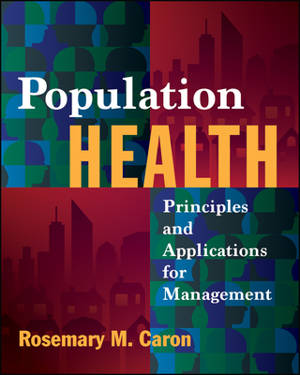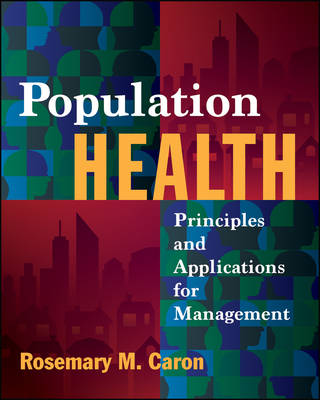
- Retrait gratuit dans votre magasin Club
- 7.000.000 titres dans notre catalogue
- Payer en toute sécurité
- Toujours un magasin près de chez vous
- Retrait gratuit dans votre magasin Club
- 7.000.0000 titres dans notre catalogue
- Payer en toute sécurité
- Toujours un magasin près de chez vous
Population Health: Principles and Applications for Management
Principles and Applications for Management
Rosemary CaronDescription
The field of population health examines a diverse range of environmental, physical, and cultural conditions that occur within populations; considers the health outcomes influenced by these conditions; and seeks the development of policies and interventions to improve health and minimize health inequities in an efficient and affordable manner.
Population Health: Principles and Applications for Management provides the building blocks for taking a population health approach, which represents a new way of promoting health, preventing disease, and navigating public health and healthcare challenges in an ever-changing environment. The book explains the key principles, skills, and applications of public health; describes how a healthcare administrator can use epidemiology, the basic science of public health, to understand and address the needs of communities; and then synthesizes this information to provide an introduction to population health management.
Key topics include the following:
The core functions of public health Public health system organization Descriptive and analytic epidemiology Health determinants and their impacts Methods for assessing the health of a community Applications of managerial epidemiology Elements of a data-driven approach to population healthBolstered by a variety of case studies and exercises, this book provides students with a conceptual framework that can be further developed and expanded through subsequent experiences in the workplace. Although the specific public health and healthcare issues facing communities will inevitably change over time, this framework will remain essential to efforts to improve the health of populations.
Spécifications
Parties prenantes
- Auteur(s) :
- Editeur:
Contenu
- Nombre de pages :
- 376
- Langue:
- Anglais
- Collection :
Caractéristiques
- EAN:
- 9781567938616
- Date de parution :
- 01-04-17
- Format:
- Livre broché
- Format numérique:
- Trade paperback (VS)
- Dimensions :
- 203 mm x 254 mm
- Poids :
- 757 g

Les avis
Nous publions uniquement les avis qui respectent les conditions requises. Consultez nos conditions pour les avis.






